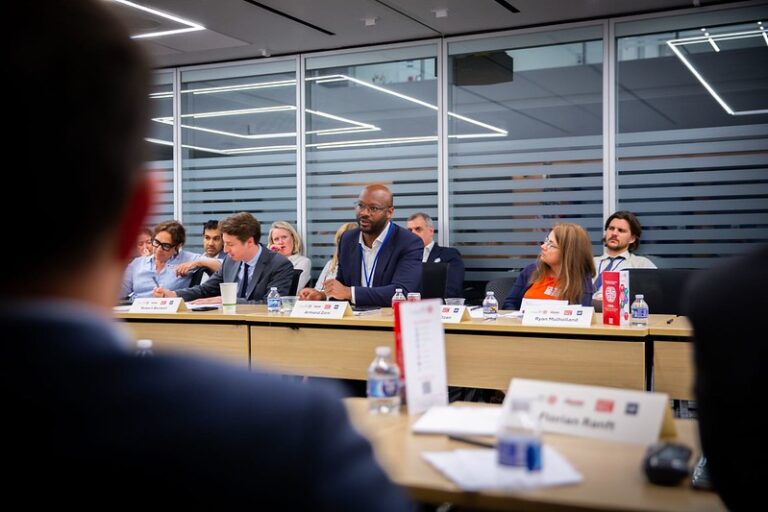High-inflation, rising energy costs and differing macro stances pose new challenges for the countries of the West which counter Putin’s war collectively but need to urgently develop strategies for the upcoming months. That’s why Das Progressive Zentrum (DPZ), together with the Foundation for European Progressive Studies (FEPS) and the Friedrich-Ebert-Stiftung (FES), created an invite-only space for economic advisers and experts to debate and strategise before flying to the IMF Annual Meetings in DC: The Progressive Economics Network.
On October 6 the virtual kick-off meeting for the newly-established Progressive Economics Network took place. The Network aims at providing a space for economic advisers and decisionmakers to strategize, exchange best-practices, and form a progressive economic policy strategy. Speaking with one voice while also addressing current challenges openly is more important than ever for progressives in power. Faced with the ongoing inflation crises and the energy crunch, progressives need to develop solutions quickly.
Before meeting at the IMF Annual Meetings in Washington DC last week, 34 advisers and experts joined the exclusive discussion. Prof. Ulrike Malmendier (Berkeley) and Prof. Moritz Schularick (Sciences Po / Bonn) kicked off the debate with their viewpoints on the current macroeconomic situation, followed by a response from Steffen Meyer (German Chancellery). Carys Roberts (IPPR) hosted the meeting.
Key Takeaways
- There is a risk of tightening monetary policy too much.
- Fiscal policy, in the current inflationary environment, should do more to support low and medium earners, while avoiding a full blown stimulus.
- Tax reforms are needed to ensure ongoing cost-of-living support measures are based on a strong revenue base.
- There is a tricky trade off between price caps and direct subsidies. But clever behavioral design can square the circle.
Synopsis
Das Progressive Zentrum provided a synopsis, which summarizes the four main takeaways from the discussion and elaborates on DPZ’s official position.
In cooperation with
Author
Further articles
Trade, Trust and Transition – Transatlantic Perspectives in Times of Geopolitical Disruption
Winning Hearts and Minds – Transforming the Industrial Heartlands
Preparedness, Investment and Industrial Policy in Times of Political Upheaval
Photo credit: IMF Photo/Allison Shelley








